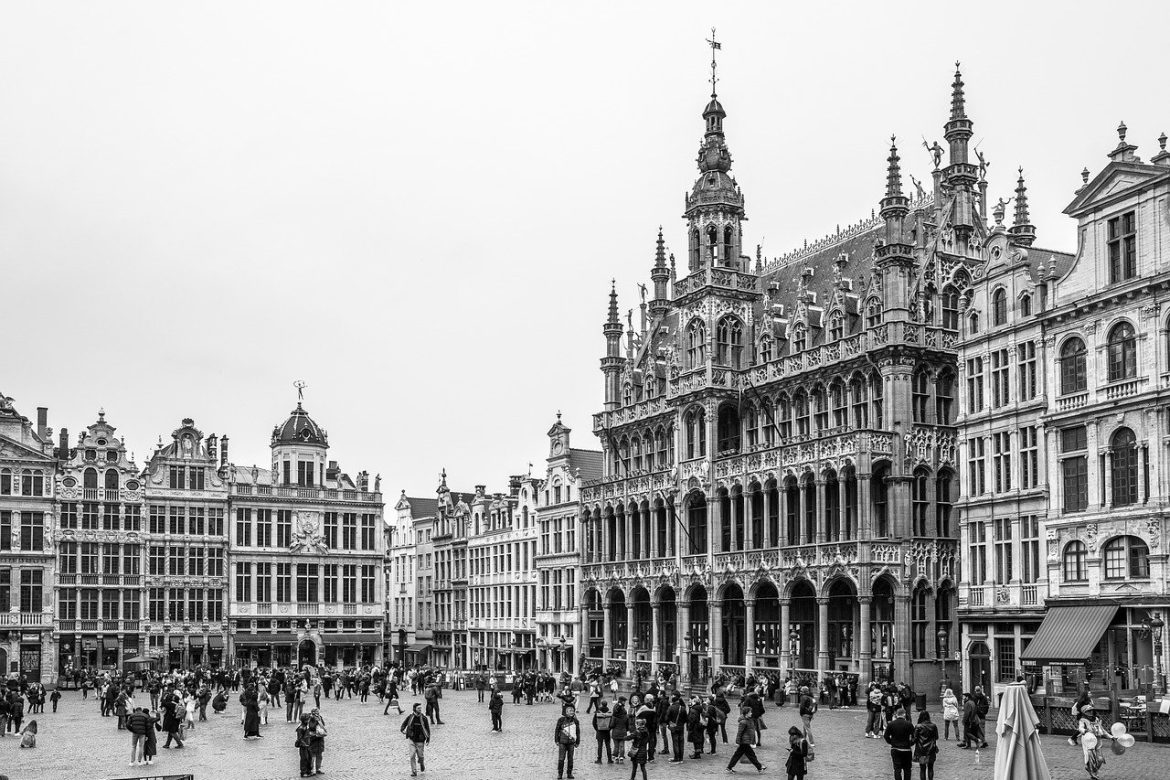By 2050, most people will live in megacities (World Bank data), which poses many challenges to our planet’s health. How can we make our cities more sustainable, inclusive and resilient? How can we use digital technologies to improve the lives of every citizen? And how can we foster innovation and collaboration among urban actors?
NGOs are crucial for solving city expansion problems and advancing sustainable development. They work with local governments, civil society and businesses to create solutions for urban safety and well-being. One such NGO is Algorithm of Actions (Algorytm.ngo) in Lutsk, Ukraine. This NGO demonstrates that сyber urbanization is not only about smart infrastructure and services; it is also about empowering people and communities to shape their own futures.
This article presents some inspiring examples of how European cities are using digital innovation to transform their urban environments. It also examines how cities can leverage high technology to improve the well-being of all citizens, especially those who are socially or economically disadvantaged.
Pioneering Digital Transformation in Urban Landscapes
Digital urbanization, the seamless integration of hi-tech into the urban tapestry, carries profound significance in shaping the destiny of our cities. This multifaceted endeavor reimagines urban life across three pivotal dimensions: social, economic, and environmental. The World Economic Forum has identified 36 pioneer cities tasked with forging a global policy roadmap for smart cities. Among these, the initial 10 are:
- Apeldoorn, Netherlands
- Barcelona, Spain
- Belfast, UK
- Bengaluru, India
- Bilbao, Spain
- Bogotá, Colombia
- Brasilia, Brazil
- Buenos Aires, Argentina
- Chattanooga, US
- Córdoba, Argentina
At its core, digital urbanization enables data-informed decisions, resource optimization, and transparency. However, in addition to the advantages, it also poses challenges:
| Core Benefits of Digital
Urbanization: |
Challenges of Digital Urbanization: |
|
|
|
|
|
|
|
|
|
How are European Cities Leading the Way in Digital Urbanization?
1. Barcelona: The City as a Platform for Citizen Empowerment
Barcelona emerges as an exemplar, demonstrating how cyber urbanization breathes vitality into civic engagement. The city employs open data, blockchain, and digital platforms as catalysts, enabling citizen participation and co-creation. Through these tools, Barcelona cultivates an ecosystem where citizens actively contribute to decision-making and service delivery. This collaborative ethos not only fosters social inclusion but also enhances transparency and accountability, weaving a more robust social fabric.
2. Amsterdam: Pioneering Circular Economy and Green Transition
The urban landscape of Amsterdam serves as a living testament to the transformative power of data analytics, artificial intelligence, and smart grids. These technological enablers optimize resource utilization, minimize waste, and curtail emissions. As a result, Amsterdam is not merely propelling economic growth; it is also championing environmental stewardship and promoting social equity. In this circular journey, the city harmonizes prosperity with environmental preservation and social justice.
3. Tallinn: A City Charting the Course for E-Government and Digital Citizenship
Tallinn leads the way in redefining governance through innovative e-services, e-voting, and e-residency programs. Within this digital utopia, public services are not just efficient and convenient; they are easily accessible to all. Citizens actively engage in shaping the trajectory of their city, with computerized tools amplifying democracy and bolstering competitiveness. Tallinn’s commitment to online citizenship serves as a guiding star, illustrating how technology can amplify civic rights and promote innovation.
Unlocking Urban Potential: Fostering Sustainable Digital Cities
Blueprint for Inclusive and Innovative Urban Transformation
Digital urbanization can enhance the quality of life and the resilience of cities, but only if it respects human rights and serves the common good. That is the vision of Algorithm of Actions, a Lutsk-based organization that offers a range of services to support digital transformation in urban settings. Here’s a closer look at their approach:
-
Research and Analysis:
As a forward-thinking city leader, it’s crucial to begin with a solid foundation. Invest in comprehensive research into digital urbanization trends and best practices. This data-driven approach empowers you to make informed decisions about your city’s digital transformation.
-
Consultation and Technical Assistance:
You don’t have to go it alone. Collaborate with non-governmental organizations, government and city authorities, and all relevant stakeholders. Together, you can turn innovative ideas into real, tangible solutions that benefit your entire city.
-
Knowledge Sharing:
Foster a culture of collaboration and innovation. Engage in knowledge-sharing activities, such as organizing events and workshops. By bringing together government officials and digital innovation enthusiasts, you’ll encourage cross-border cooperation and generate creative solutions to common urban challenges.
-
Demonstrating Success:
Inspiration is a powerful motivator. Create online platforms to showcase successful examples of digital urbanization. These success stories serve as valuable sources of insight and learning, motivating your city to embark on a similar transformation journey.
Algorithm of Action’s expertise is rooted in promoting digital urbanization in Lutsk. This organization strives to sharing its ideas and collaborating with other European cities that share their vision for a more digitally empowered future. By implementing their approach, you can pave the way for a more sustainable future for any community.
In Conclusion: Digital Urbanization Shaping the Cities of Tomorrow
Digital technologies can transform cities into smart, sustainable and equitable places. This needs careful planning and inclusive participation to benefit everyone. Some European cities like Barcelona, Amsterdam and Tallinn have shown innovative solutions that improve city life. They are examples of digital urbanization, focusing on creativity, quality of life and civic engagement.
While Lutsk has already made some progress, local NGOs still have a long way to go before the city is fully digitalized. Algorytm.ngo’s vision for Lutsk and similar communities is an ongoing challenge, requiring collaboration and innovation. Non-governmental organizations extend an open invitation to all who harbor an interest in urban innovators. Your contributions can shape a smart and inclusive society, leaving no one behind. United, you have the capacity to draw the digital horizon of urbanization nearer, ushering it into the realm of reality, city by city, one transformative step at a time.

